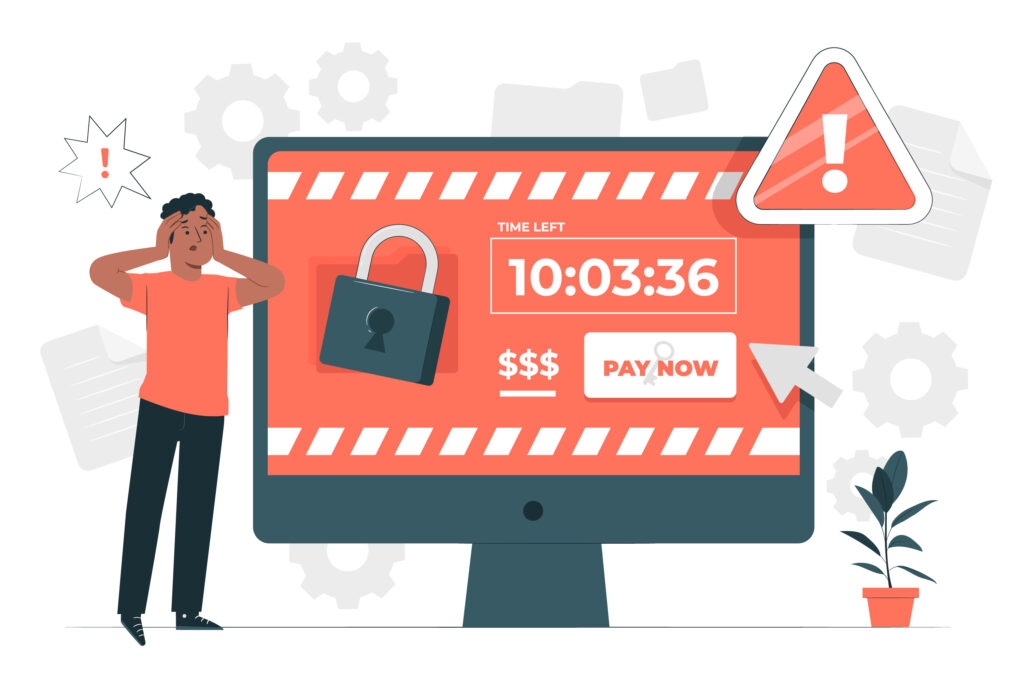Ransomware attacks pose a severe threat to organizations globally, including Nigerian businesses. These cyberattacks encrypt sensitive data and demand ransom payments for its release. For Nigerian Chief Information Security Officers (CISOs), ransomware preparedness is essential to secure critical assets and maintain operational resilience.
Understanding the Threat
Ransomware has evolved beyond simple encryption attacks to include double extortion techniques, where criminals also threaten to leak stolen data. Nigerian businesses in sectors like finance, healthcare, and government are especially vulnerable due to the value of their data. Even refusing to pay ransoms can have severe consequences, including:
- Exposure of sensitive information on the dark web.
- Reputational damage and potential customer lawsuits.
- Increased vulnerability to future attacks.
To mitigate these risks, businesses must adopt proactive cybersecurity measures.
Key Elements of Ransomware Preparedness
1. Conduct Regular Data Backups
- Maintain frequent, automated backups of critical data.
- Store backups offline or in secure cloud environments with encryption.
- Regularly test backups to ensure they are functional and recoverable.
2. Implement Robust Endpoint Protection
- Deploy Endpoint Detection and Response (EDR) solutions to block ransomware threats.
- Ensure all endpoint devices are patched with the latest updates.
- Use Multi-Factor Authentication (MFA) to secure remote access.
3. Network Segmentation
- Isolate sensitive data and systems from the broader network using VLANs and firewalls.
- Limit lateral movement by segmenting critical assets.
- Monitor network traffic for unusual patterns.
4. Conduct Employee Awareness Training
- Train employees to identify phishing emails and other ransomware tactics.
- Encourage prompt reporting of suspicious activities without fear of reprisal.
- Simulate phishing attacks to assess and enhance employee responses.
5. Leverage Threat Intelligence
- Stay updated on the latest ransomware tactics, techniques, and procedures (TTPs).
- Collaborate with peers and national cybersecurity organizations to share insights.
6. Deploy SIEM for Proactive Monitoring
- Use a Security Information and Event Management (SIEM) system to detect threats early.
- Correlate and analyze log data for signs of ransomware activity.
7. Prepare an Incident Response Plan
- Define clear roles and responsibilities for ransomware incident management.
- Include detailed steps for containment, eradication, recovery, and communication.
- Test the plan regularly through simulated attack scenarios.
Best Practices for Nigerian Businesses
Invest in Cyber Insurance
Cyber insurance can help offset costs related to ransomware attacks, including ransom payments, recovery efforts, and legal fees.
Adhere to Regulatory Compliance
Ensure compliance with Nigeria Data Protection Regulation (NDPR) and international standards like GDPR to avoid penalties.
Use Advanced Security Tools
Deploy advanced solutions like email filtering, behavioral analysis, and threat detection tools to fortify defenses.
Adopt Zero Trust Architecture
Implement a Zero Trust model where no user or system is trusted by default. Verify all access attempts to safeguard critical systems.
Emerging Trends in Ransomware Defense
- AI-Powered Security: Leverage artificial intelligence for predictive threat detection and prevention.
- Decentralized Storage Solutions: Minimize risks by distributing data across multiple secure locations.
- Blockchain-Based Verification: Authenticate data and processes to prevent tampering.
Ransomware preparedness is vital for Nigerian businesses to maintain resilience against evolving threats. By combining cutting-edge technology, employee training, and strategic planning, CISOs can protect their organizations from ransomware attacks. Proactive measures not only safeguard data and operations but also reinforce trust and reputation in an increasingly digital landscape.

